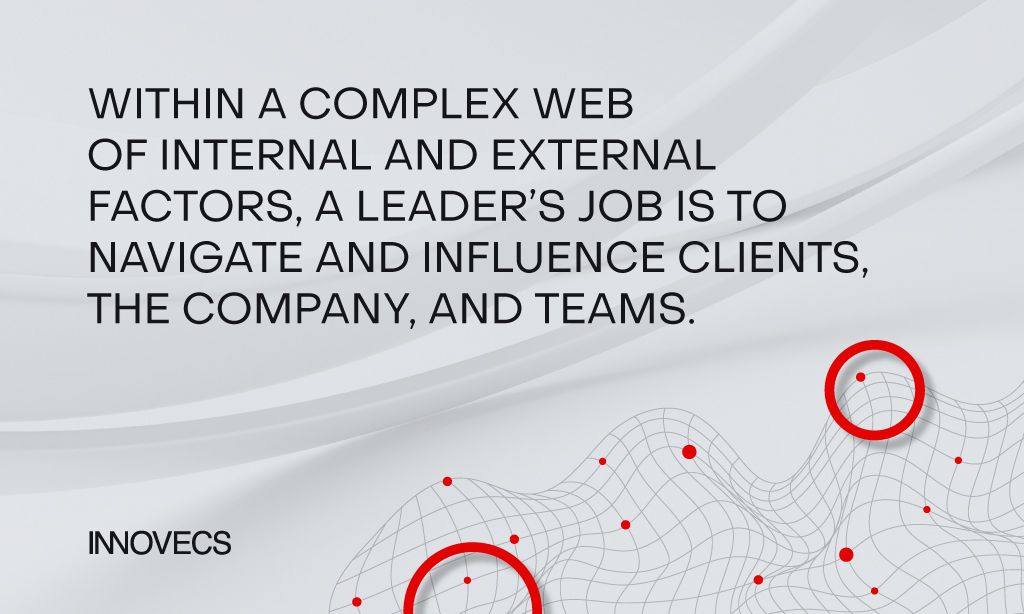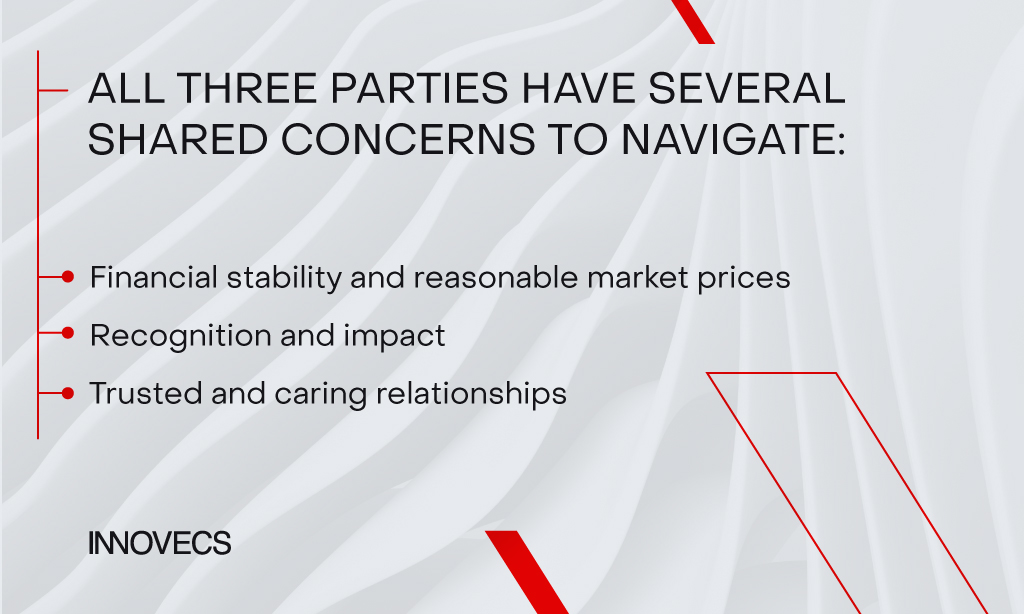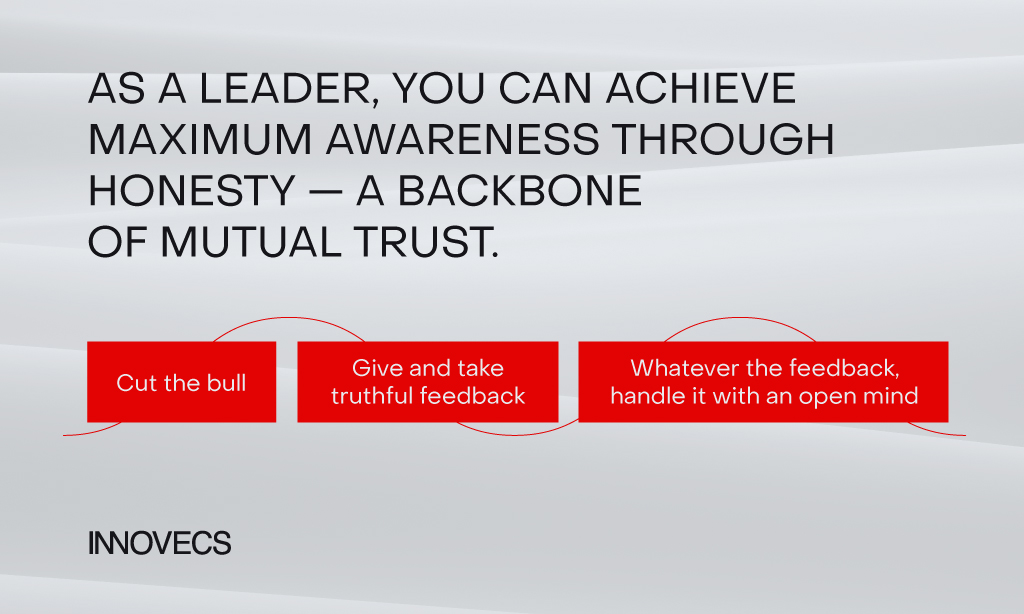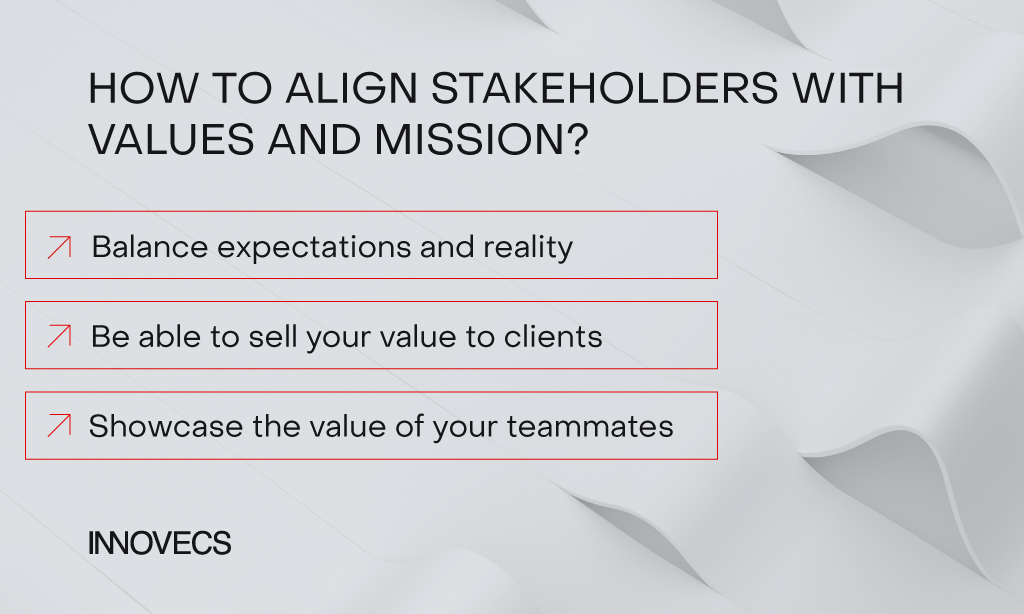Join us as we delve into the art of orchestrating success in the dynamic realm of business, clients, and teams. In an exclusive conversation with Vlad Kopanko, we unlock the secrets behind maintaining equilibrium among diverse stakeholders.
Every business operates within a complex web of internal and external factors that shape its development and growth trajectory. Stakeholders, whether they are external or internal, can have a profound impact on the direction and success of the business, regardless of its nature, whether it is product or service-based.
In the case of service-based businesses, clients are one of the critical pillars that exist in all organizations. Not only do they heavily influence the business, but they also provide complementary value. A team of dedicated individuals is essential for any successful business, although the size of the team may vary depending on the specifics.
Ultimately, the primary objective of any business, whether it is a product, service, or otherwise, is to generate revenue. While there may be a few outliers, it’s safe to say that for most companies, the goal is to turn a profit. As such, a leader or manager operating in this environment must navigate and influence all three components to achieve success.

Navigating shared concerns
Effective communication is crucial when navigating shared concerns among stakeholders at different stages of business development. While the factors influencing stakeholders may vary, there are always common points of contact that must be considered. These points determine what is suitable, acceptable, and satisfying for all parties involved. The shared need for financial stability and recognition are fundamental concerns at the basic level.
For example, in a client-company relationship, both parties require profitability to achieve their goals. The client wants to pay a reasonable market price with a discount for a high-quality product, while the company aims to make a profit. If the company makes a 40-50% margin while meeting the client’s needs, the project is deemed successful, and both parties are satisfied. Additionally, financial stability is critical to everyone, from timely salary payments for employees to on-time contract payments for companies.
Apart from financial stability, recognition, and impact are essential shared concerns. A remarkable product is critical to success, as negative comments can damage a company’s reputation. Companies need to create a product that they believe is the best on the market, and this is only possible through continuous consumer feedback. Recognition also extends to the employees who need to feel valued and secure in their positions, as they play a significant role in a company’s success. Corporate culture and openness play an important role in creating an environment of trust, where employees feel that their opinions matter and their contributions are valued.
Finally, recognition on a global stage through awards and accolades reinforces a company’s value and niche in the market. A company that is recognized as successful and attractive on the global stage can wield a certain degree of power in its niche. All of these factors contribute to a company’s success and the satisfaction of all parties involved. Therefore, it is essential to consider these shared concerns and prioritize them in business development.

Nourishing caring relationships
Comfort is crucial in any relationship, be it between individuals or businesses. Customers desire a clear understanding of the business paradigm, where trust exists and the company values them. In turn, companies must understand their customers to create lasting and trustworthy partnerships. This understanding is achieved through systematic market research, which helps to identify customer needs and create innovative products and services that meet those needs.
By focusing on growth and expansion, businesses create comfortable growth zones that enable them to invest in extra features and products. However, the concept of comfort from the team and individual perspective is evolving, with new meanings emerging. The office’s location, ergonomics, and comfortable chairs are no longer enough to provide comfort, given that most people work from anywhere nowadays.
As a result, discussions about comfortable working conditions, such as lightweight yet powerful laptops, have emerged. While six years ago, this may not have been a topic of discussion, it is now a significant factor in creating comfortable working conditions. People value flexibility and the ability to work from different locations, and it is vital to meet these needs to create a comfortable work environment.
As an example, six years ago, 90% of my team worked in the office. There was a schedule and policies in place to organize the workspace, and there was no discussion about comfortable laptops. However, with the rise of remote work and the need for flexibility, we now prioritize the needs of our team. Providing a comfortable work environment from any location is essential to ensure they bring value to the company.
Gaining valuable insights through honesty
Achieving complete awareness of all concerns and issues is an elusive goal, even for perfectionists like me. However, working closely with international companies has taught me the importance of honesty in building trust-based relationships. People appreciate straightforwardness and candidness, and I always present the situation truthfully to my clients without embellishing or sugarcoating it.
Establishing trust-based relationships allows me to receive truthful feedback, which is crucial in stakeholder management. This is especially true when working with Israeli clients who value cutting through unnecessary fluff and getting straight to the point. To effectively address their concerns, it is important to ask the right questions and provide feedback that is fair, open, and understandable.
While not all feedback may be positive, handling it honestly and openly is pivotal. Even when faced with difficult concerns or escalations, I communicate my vision and answer truthfully. This approach strengthens the relationship with the client and helps build a positive reputation for honesty and integrity. Ultimately, gaining valuable insights through honesty allows for more effective stakeholder management and the development of long-lasting relationships based on mutual trust and respect.

Alignment with Values and Mission
In the world of healthy business relationships, signing a contract should be a one-time event. However, when lawyers or managers resort to proving their worth, it’s a clear indication that there’s a problem. At this stage, it’s essential to align expectations and reality to avoid misunderstandings between stakeholders.
To achieve this, it’s crucial for clients to understand the value and usefulness of their digital partner company. Failure to comprehend the value may cause clients to question the fees charged, leading to doubts about the partnership’s worth. It’s the responsibility of the company to demonstrate and sell its value to its clients.
Similarly, companies must demonstrate the value of their employees to build long-term relationships. Since employees have their own speed and proactivity, it’s not easy to spell out their contributions in a contract. However, showcasing their value and results can help align differences in vision.

When Priorities Collide
Risk assessment is critical in situations with contradicting priorities. By evaluating risks and their probable impact, it’s possible to rank them and weigh the cost of each one. This exercise can help calculate the outcome of conceding to contradictory priorities and views. Conversely, it can also evaluate the potential risk of refusing to concede, leading to project closure. By ranking the risks, stakeholders can make informed decisions.
In any case, it’s always essential to deliver more than what’s expected of you to maintain healthy relationships. This approach has a tremendous positive impact on relationships, regardless of the stakeholder.
Taking the pulse of progress
Balancing all stakeholders is a subjective question for any leader when it comes to measuring managerial success. Monetary value, strong and long-lasting relationships, and the proportionality of all considered metrics can gauge progress. From the team’s perspective, analysis can be done on engagement, attrition, loyalty, new ambassadors, and unwavering support from existing ones. However, there are always intangibles that are gleaned from between the lines that are impossible to quantify.
A well-balanced system involves one crucial characteristic: a cycle of predictable achievements. It’s a continuous process of planning, working, receiving feedback, improving quality, and repeating the cycle. The same sequence can be applied in other areas, even in boxing, if you will. Ultimately, a healthy ecosystem of a company’s interactions with its employees and clients involves constantly exchanging information, understanding reality, and ongoing adjustment of moods and results.
Edited by Nataliia Yatsuliak
